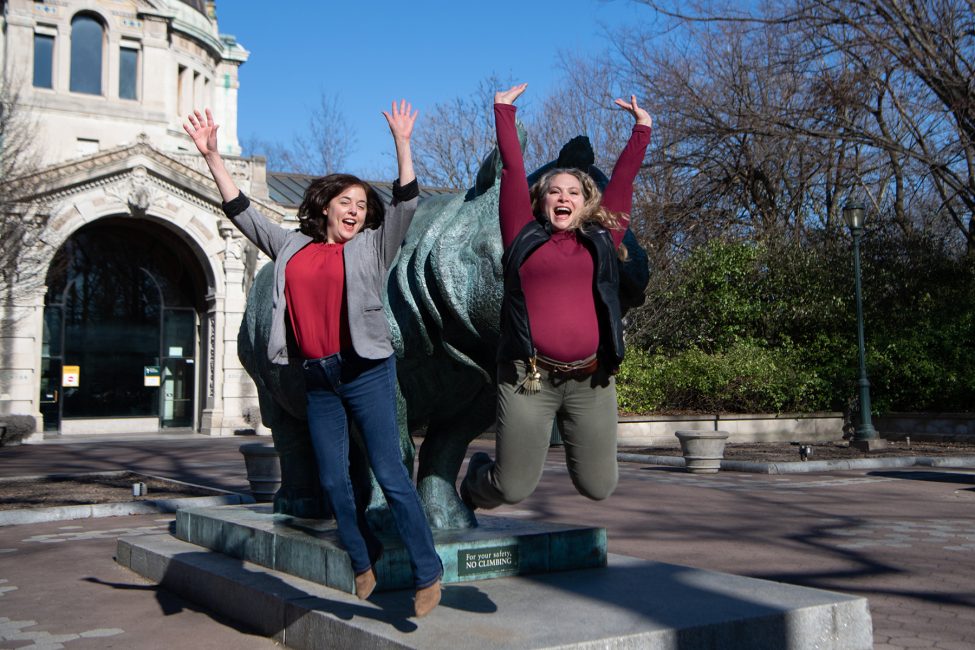
March 28, 2023
Danielle LaBruna and Melissa Nelson: Empowering Women in the Workplace
- as seen by -
 Julie Larsen
Julie Larsen
Women’s History Month is a time to celebrate the contributions women have made and to recognize their achievements throughout history.
Danielle LaBruna and Melissa Nelson work for the Wildlife Conservation Society. They are co-leaders of WAGE (Women and Allies for Gender Equity), an Employee Resource Group at WCS.
We talked about their perspectives and careers as women in the field of conservation.
JL: How did you find your way to careers at WCS?
DL: How much time do you have? I’ve had quite a variety of positions in my 19 years at WCS. I began as an intern in 2004 shortly after getting a Master’s degree in Conservation Biology at Columbia University. I liked the visual nature of GIS (Geographic Information Systems, which is mapping and using geographic data to answer questions). I applied for a GIS internship on the ecological history of the Bronx River. Then I worked as a program officer for the Hunting and Wildlife Trade Program, and simultaneously for the Training and Capacity Building Program. I spent a couple of years doing GIS and outreach on curbing urban sprawl. I came back to the Bronx for the Mannahatta Project, doing project management with a little GIS mixed in. I moved into the Conservation Support team which morphed into a position with the Conservation Technology team. I eventually became Senior Geospatial Analyst. I am now Associate Director of Conservation Technology, where we support the tech tools that help make front-line conservation as effective as it can possibly be.
MN: I grew up here. The Bronx Zoo is where I learned to love animals. I never imagined I would work here because I started my career as a dolphin and sea lion trainer. After spending seven amazing years in the Florida Keys at the Dolphin Research Center, I moved back to New York to attend the Master’s program in Animal Behavior and Conservation at Hunter College. The first job I applied for when I was done was a brand new role at WCS in 2008, and I have been here ever since. Currently, I am in the final stages of my PhD in BioPsychology and Behavioral Neuroscience through the CUNY Graduate Center and Hunter College. I’m really looking forward to completing my degree and being able to dive into research that will benefit our animals.
JL: You are co-leaders of WAGE. What are the mission and goals of WAGE for our organization?
DL: Our mission is to empower women in the workplace, to ensure women’s perspectives are incorporated into decision-making, and to establish a path to leadership roles for women. We have working groups on seven topics: Career Pathways, Child Care, Child Leave, Lactation, Mentoring, Pay Equity, and Social Networking. It’s a lot to move forward on all at once, but these topics are important to our members, so we are forging ahead. We have smart, motivated people in WAGE. We’ve made great headway.
MN: In a nutshell, it’s about bringing folks together from across WCS for networking, support, and collaboration.
JL: What are some of your achievements with WAGE?
DL and MN: We are a very large group of engaged and passionate people. This is a big achievement but challenging at the same time. Honestly, many of the connections we’ve made across the organization would never have happened without the ERG so it is really functioning to break down silos and connect us in ways we could not have predicted.
JL: Any anecdotes along the way?
DL: A wonderful and unexpected benefit of being involved in WAGE, and the Women’s Group before it, has been meeting the many fantastic, creative, intelligent, capable women across WCS – people I do not work with directly and would have never met otherwise. This has paid dividends in the form of beneficial work relationships and collaborations and has made me appreciate what my colleagues in other departments do on a daily basis and the challenges they encounter.
MN: In college I had a professor tell me that women do not belong in science so if I was there to become a dolphin trainer, I should transfer to a different major. It was a delicious moment when I, as a female dolphin trainer, could invite him onto the dock to meet one of my dolphins and witness his amazement. (I wish I could invite him to my PhD defense.) When people say you will not succeed, do it anyway.
JLM: What does Women’s History Month mean to you?
DL: It’s a time to appreciate the sacrifices our foremothers made for us so that we could have a better life than they had – the right to vote, the right to bodily autonomy, and the right to equal pay for equal work. It’s notable that we have achieved none of these goals – with Roe v. Wade being overturned last summer, women’s bodily autonomy has taken a step back; with current attacks on voting rights and accessibility, the right to vote is not a guarantee, especially for women of color; and the right to equal pay for equal work has never been achieved for women of any color.
MN: Life happens fast. It is easy to lose sight of achievements. Women’s History Month is an opportunity to slow down, celebrate women’s successes, and realize we are standing on the shoulders of giants.
JL: What advice would you give the next generation that wants a career in conservation?
DL: Keep in mind that whatever your degree, to be a good conservationist, you will have to grow and learn and continuously challenge yourself on multiple fronts, beyond your expertise in your niche – communication, fundraising, management, leadership, budgeting, among other things – not to mention how technological changes influence all of these.
MN: Career advice is something for which I am often asked, and I feel strongly about providing it because it was very difficult to find my own way. I remember how confusing it could be. My advice is twofold; be creative forging your own path because there is no one right way to do it. Just keep moving forward. Secondly, find a mentor – even someone who is not in the field, but who can keep you focused, encourage you to reach higher, and help you when you stumble.
EDITOR’S NOTE: To celebrate Women’s History Month, Wild View is featuring posts by and about women and their contributions to science and conservation throughout March.
Nikon D6
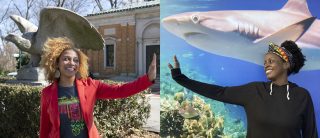
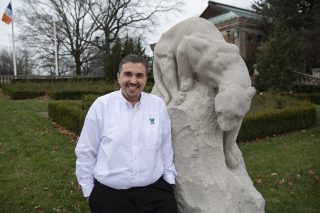
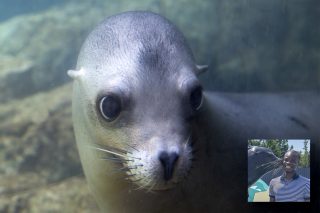
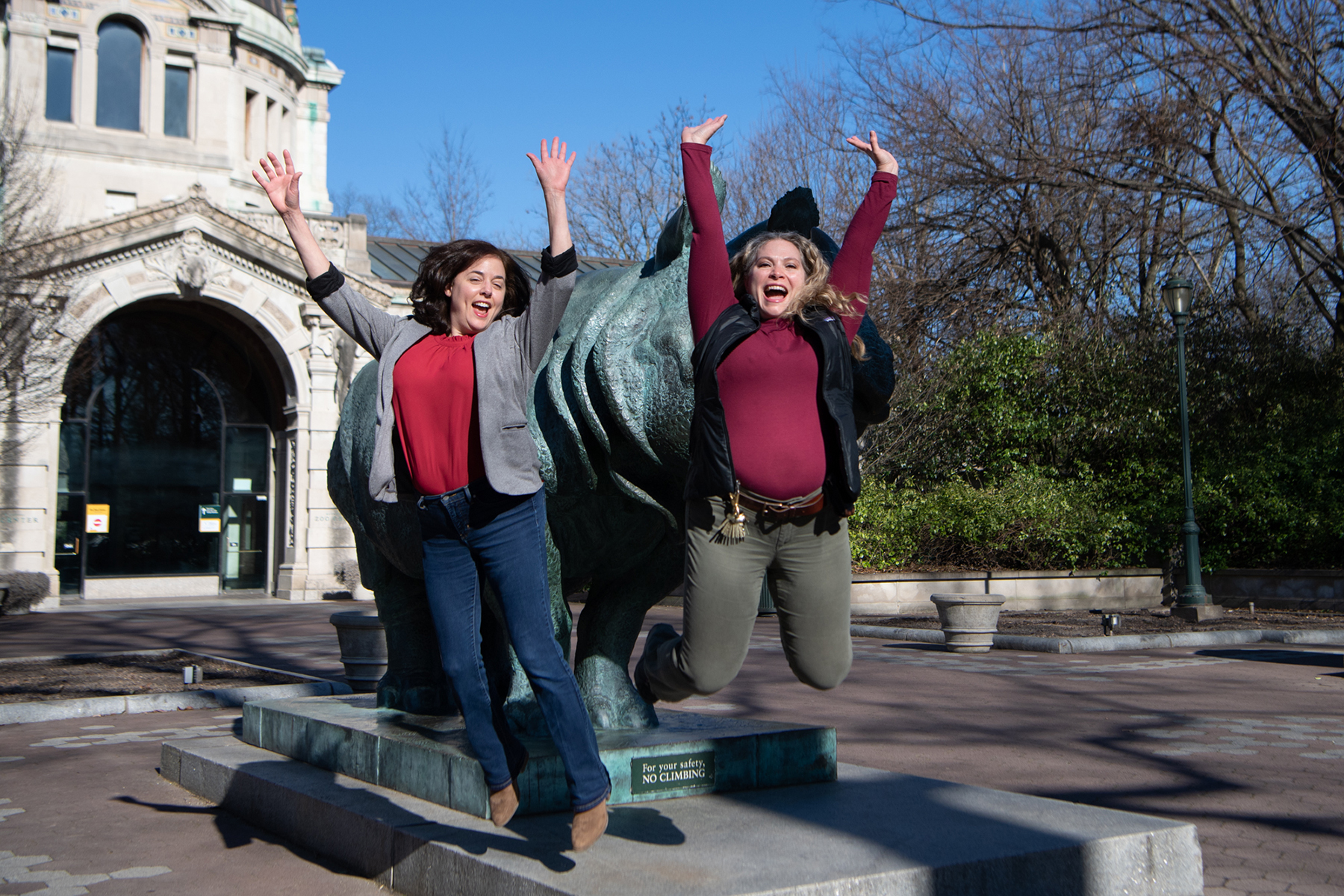
Comments